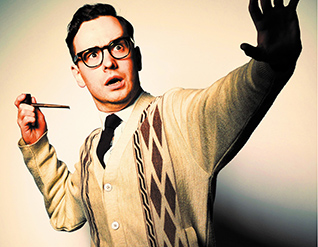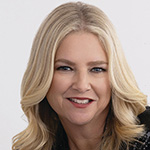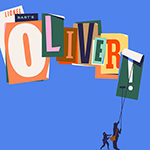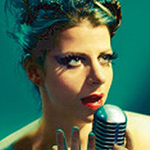The Time Machine
Live at Zédel at Crazy Coqs, London, UK, September 9, 2017
Reviewed by Thanasis Kalantzis for Cabaret Scenes

A visionary and a pessimist, the English writer H.G. Wells produced some spine-chilling futuristic novels.
They all present quite a dark future for the ultimately doomed humanity, which, of course, makes them the perfect recipe for major Hollywood movies: The War of the Worlds, The Invisible Man, The Island of Doctor Moreau, and the dystopian novel The Time Machine. The last one has been adapted for film, TV, radio, even comic books, as well as the musical theater form. After a very successful run at the Edinburgh Fringe Festival and some pretty impressive reviews, this new stage version was presented at Live at Zédel at Crazy Coqs.
The inspired adaptation was conceived, beautifully written and directed by Lindsay Sharman, while Laurence Owen wrote the music. The two artists also acted the roles: Sharman plays the producer of the radio show (who hilariously executes the sound effects) during which Owen narrates the time traveler’s story and sings the original score that frames it.
The re-telling of the story takes place in 1959 during a recording session at the Radio Woking station. Under the sounds of a theremin played by Owen, we are transported to Richmond, England, in 1895, when the Time Traveler—no other name is given—appears at a dinner party and announces that earlier that morning he sat on the saddle of his time machine, pulled the lever, and traveled some 800,000 years in the future. His report on the future is disheartening: the human race has been split into two species: the Eloi—4-feet tall, playful, naive and indifferent, fruit-eating, sleeping-on-the-floor creatures—and the terrifying Morlocks, who live underground and feed on the Eloi.
As works of sci-fi go, The Time Machine is packed with symbolism. In accordance to Wells’ social views, the Eloi are an extrapolation of the good-time but ineffectual elitist stratum that has lost the capacity to think and fear, while the Morlocks represent the working class that takes advantage of them.
During the hour-long show, the story line flows naturally and manages to stay together, despite the many time-lines. The originally ominous, post-apocalyptic nature of the theme has been sprinkled aplenty with balanced humor, light interruptions — such as advertisements for toothpaste and matches— and some pretty great songs delivered excellently by Owen, all of which wisely diffuse the heavy atmosphere created by the, in places, really gripping narration. And the timing of every line is just spot-on by both actors.
This musical theater adventure is perfectly right as it achieves its dual goal to entertain and also make you think. I can only call it artistic creativity of the highest caliber.





